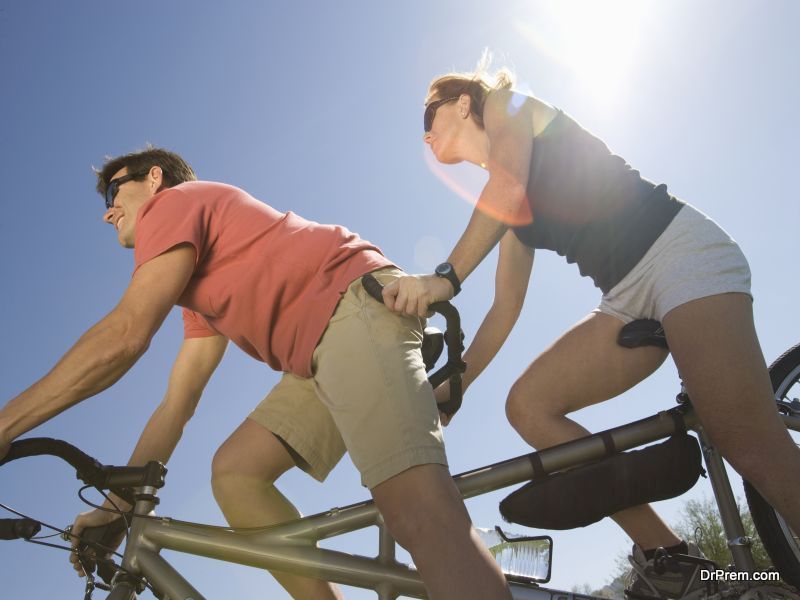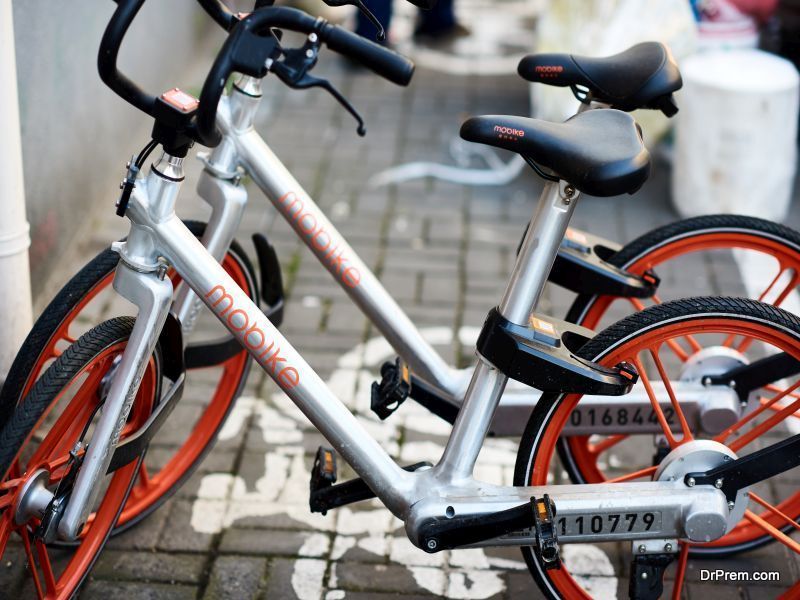The majority of people still don’t bike to work, despite vast improvements in their cities’ cycling infrastructure. If we’d start talking about all the benefits of cycling, we’d be here until tomorrow. It has the potential to improve one’s health and wealth, and could give a boost to the entire country due to fewer cars on the roads. We’ve compiled a list of benefits which may motivate you to lift your foot from the gas and start pedaling.
It’s much cheaper than driving
In the US, the cost of owning a car increased almost 2% (up to $9,000) in 2012 because of the rising tire upkeep and fuel costs. On the other hand, keeping your bike in shape will cost you 30 times less (around $300 per year). For example, if American drivers would make one four-mile trip each week with a bicycle, they’d save about 2 billion gallons of gas (about $7.3 billion per year in total savings). Bicycle maintenance is also cheap and a DIY project as well. If, let’s say, your gear shifter needs replacement, you can order a Shimano gear shifter online and replace it in your garage (if you know your way around bikes, which is easy and it would take you a few days to get it right).
No need to own a bike
When it comes to major world metropolises, there has been a wave of bike share programs, which allow riders up to 45 minutes of free transportation in exchange for a small annual fee (up to $95). Subway commuters spend more than $100 per month, you do the math.
You’ll avoid morning traffic jams
An average car commuter spends about 25 minutes driving to work each day, and it can take twice as long in overpopulated cities. Cycling gets you there faster. With three- to five-mile bike trips, cycling to work takes less time (or at least the same amount) as commuting by car.
You’ll inhale more fresh air
People inhale more harmful exhaust vapors in the car than on a bicycle. Any set of lungs find fuel emissions as bad news, making car drivers more susceptible to bad air than cyclists. Car occupants are close to sucking on the tailpipe of the cars that move ahead of them. Vehicles are not hermetic as they seem, and the lungs of bus riders are above these emission sources, while pedestrians and bikers are on the very outskirts.
It’s a good workout
Cycling is a good cardio and many people report that they’ve managed to shed pounds of fat almost in an instant. The upside of it is that you don’t have to find time or pay to hit your “gym on wheels”. Bicycle commuters can lose about 13 pounds (on average) just in their first year of cycling. It can have great cardiovascular benefits. Overweight people find starting a regular exercise program hard on their joints, due to extra weight. Biking or swimming are activities that don’t pound on the joints, which is a good thing.
More safety on the roads
The roads will be safer with more cyclists on them. As more people start riding bikes in a city, the number of cyclist-driver collisions decrease. And it’s not just about fewer cars, but to driver behavior which changes to include safer driving practices because of the higher number of pedestrians and cyclists. As the perception of the safety of cycling improves due to decreased number of collisions, more people begin riding bikes, making cycling a virtuous cycle.
The last, but not least is that cycling gives you a strong sense of freedom. Remember when you were a child, how it felt when you got rid of the training wheels and started flying down the road. Later in life, the car comes to define a new sense of freedom. However, it starts feeling like a prison once you notice that you’re wasting too much time circling around for a parking space or in traffic jams. Park the car in the garage, hop on your bike, make a coffee stop on the way to work, try a new route every morning, and check out the neighborhoods. With commuting, you can see your city in a completely different way.
Article Submitted By Community Writer






